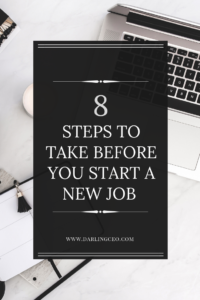First impressions matter. In fact, they matter a lot. Making a good first impression can make or break a job interview. As an interviewer, I can attest to this. Wrong or not , hiring managers form an immediate opinion of you within the first few seconds of an interview. In fact, some scientist feel that first impressions are made upon seeing someones face in just a fraction of a second!
But fear not. There are some things that you can do to help make a great first impression during your next job interview.
Be Kind to Everyone
Be kind to every single person you see on your way in. I heard a horror story once of an interviewee going full road rage on someone on the way to the interview. Come to find out, that person was the hiring manager. You do not know who does what or what influence everyone has in the company so just be nice to everyone. This goes for anyone that you interact with after the fact as well. Recruiters, HR, drug test coordinators, whomever it is just be nice, people talk. It’s not just the hiring manager that is forming a first impression of you and people talk!
Shake Hands Firmly
Make the first move and firmly shake hands with everyone in the interview. And make it a good and firm handshake. I once lost out on a job because I had a “limp noodle” handshake. True story. It matters and a firm handshake conveys confidence that helps frame others inital impressions of you.
Appear Calm and Un-rushed
Don’t come in as a rushed nervous wreck. Convey calm from the very beginning of the interview and others will naturally gravitate towards you. Need some help with this? Try some guided meditation in the parking lot or bathroom before you step in. At the very least just take a moment to stop and take a few breaths to gain your composure.
Smile
Again, seems pretty obvious but you would be surprised how many people do not smile. A friendly smile goes a long way in forming a positive first impression.
Build rapport quickly
Try to establish common ground fairly quickly. Ask about their weekend or take note of any degrees that they have displayed. Having something in common with someone works wonders for gaining a good first impression and starting a relationship off on the right foot.
What have you found to create a positive first impression in an interview? What do you pick up on when first meeting someone? Leave a comment below!
Make sure you follow Darling CEO on Pinterest










